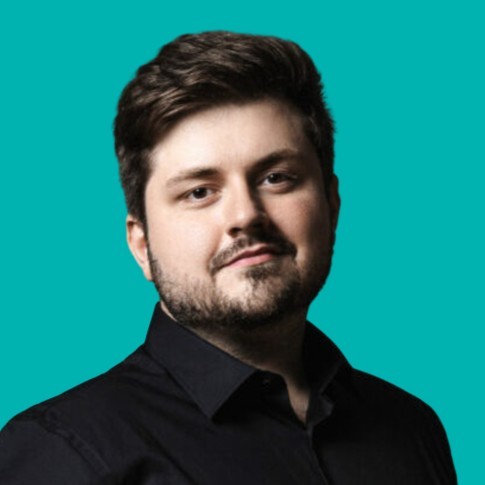Entrepreneur Case Studies
Rapid Growth and $58 Million in Financing with a Virtual Company: Storyblok CEO Dominik Angerer (Part 5)
Dominik Angerer: Then in 2021, we wanted to get repeatability done in the sales motion. You want to have leads coming in from your marketing. Then they should create opportunities from that. This repeatability was what we were focusing on. The first half of the year in 2021, I had a chat with an advisor.
He was like, “If you see repeatability, you might want to accelerate. You’re like drinking from a fire hose with an espresso cup.” This image got stuck in my head. If the process seems to work, why shouldn’t we use the money that we just raised to hire more people. We scaled from 35 people in the middle of 2021 to about a hundred.
>>>Rapid Growth and $58 Million in Financing with a Virtual Company: Storyblok CEO Dominik Angerer (Part 4)
Sramana Mitra: What other industries are you doing well in?
Dominik Angerer: Financial institutions. We can offer a really high SLA. Finance institutions are quite heavy and old, and have processes to be able to use a software. If the software you’re offering has a read-only option, it’s way easier to get in.
In education, Education First manages over half a million sites with Storyblok – half a million content pieces in 54 languages. For one landing page, it took them several weeks and months to create those sites. Now it’s a matter of days. The same applies to other industries.
>>>Rapid Growth and $58 Million in Financing with a Virtual Company: Storyblok CEO Dominik Angerer (Part 3)
Sramana Mitra: How much did you raise?
Dominik Angerer: $2.5 million. Each of them did $1.25 million. It was super nice because both of them have the same kind of upside. We had two investors who we can benchmark against each other. How many customers can they bring? How helpful are they? Both of them have been amazing so far.
Sramana Mitra: Is this the point where you introduce the enterprise pricing model?
>>>Rapid Growth and $58 Million in Financing with a Virtual Company: Storyblok CEO Dominik Angerer (Part 2)
Sramana Mitra: Let’s unpack some things. When you put out this product, you put it out on a website and people started coming. What was one that website that drew people into it?
Dominik Angerer: We have used an approach that is now a big theme – product-led growth. We wrote articles on long-tail keywords that we wanted to rank on. For us, it was headless CMS. Headless CMS was bombarded with advertisements. The first page was unreachable for us. We looked into what other people are searching for.
>>>Rapid Growth and $58 Million in Financing with a Virtual Company: Storyblok CEO Dominik Angerer (Part 1)

Dominik has built a 230-people virtual company and raised $58 million in Financing. But first, he and his Brazilian co-founder bootstrapped to $1M ARR before raising a penny! Clever SEO strategy was at the heart of the first success. Read on for more!
Sramana Mitra: Let’s start by introducing our audience to you as well as to Storyblok.
>>>Solo Entrepreneur Bootstrapping a Niche E-Commerce Venture to $12 Million: Sawyer Twain CEO Chris Turner (Part 3)
Sramana Mitra: What was your team building strategy?
Chris Turner: At first, you just want to get people to be as passionate about the business as you are. It takes some time to realize that that’s not going to be the case. First, it was challenging. I have my own internal flaws. I could be a perfectionist. I don’t want to say micromanager, but, for the lack of a better word, I could be very anal on certain things. We rotated a handful of people.
>>>Solo Entrepreneur Bootstrapping a Niche E-Commerce Venture to $12 Million: Sawyer Twain CEO Chris Turner (Part 2)
Sramana Mitra: The two of you launched this thing around 2012?
Chris Turner: Around 2015.
Sramana Mitra: Did you take inventory or consignments?
>>>Solo Entrepreneur Bootstrapping a Niche E-Commerce Venture to $12 Million: Sawyer Twain CEO Chris Turner (Part 1)

It is very difficult to find gaps in e-commerce these days. Chris found one and executed the hell out of it.
Sramana Mitra: Let’s start at the very beginning of your journey. Where are you from? Where were you born, raised, and in what kind of background?
Chris Turner: I was born and raised in Phoenix, Arizona. I graduated from Arizona State University back in 2004.
>>>